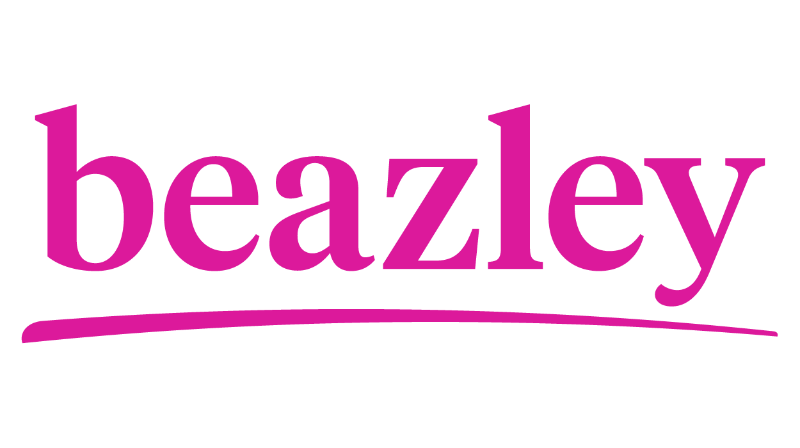Covid-19 (coronavirus) and your business
Confused about how Covid-19 affects your business insurance? Get answers at our Covid-19 FAQ.
If you have employees, protect them with Covid-19 Infection Insurance.
Directors and Officers Liability Insurance
(D&O Insurance) in Singapore
Broad cover against director & officer lawsuits, from just $42/month.
Compare quotes from leading insurers












Save up to 25% on premiums
Quick quotes for all products
Advisors available 7 days/wk
Directors and Officers Liability Insurance (D&O Insurance) protects senior management from lawsuits.
Examples of lawsuits that Directors & Officers Liability (D&O) Insurance covers:
1. Dissatisfied clients/business partners who sue you
2. Angry shareholders who sue you
3. Disgruntled employees who sue you
4. Investors/Limited Partners who sue you
D&O insurance will pay for:
1. Lawyer’s fees and other legal expenses
2. Legal compensation awarded (damages and settlements)
Who D&O insurance covers:
1. Company Directors
2. C-Suite Executives – CEO, COO, CFO, CTO, etc.
71% of all lawsuits filed against company Directors are won by plaintiffs. When you are sued as a company Director or Officer, your house, your car, and other personal assets are fair game for legal damages. These lawsuits could come from almost anywhere: dissatisfied clients; shareholders who feel you made wrong judgements and hurt their interests; or employees who feel they were wrongly terminated. Without D&O Liability Insurance in Singapore, you could potentially be on the hook for hundreds of thousands or even millions in lawyer fees and damages.
It is thus absolutely crucial to have a Directors & Officers Liability policy in place to prevent losing precious personal assets to someone else. Litigation costs are often extremely expensive, so paying a small annual fee in exchange for generous legal protection is highly recommended.
What does Directors and Officers Liability Insurance cover?
D&O Liability Insurance is made up of 3 “sides”: A, B, and C. These sections of the policy protect your company, and you, from various legal threats in Singapore.
- Directors & Officers Liability (“Side A”): Coverage for your personal assets if your company does not indemnify you.
For instance, if you retire as a Director, you will likely not be eligible for company indemnification. Or if your company goes bankrupt, it also cannot indemnify you. This side of the D&O policy will protect you.
- Company Reimbursement (“Side B”): Coverage for your company.
For instance, if you are sued as an active Director/Officer, your company will likely pay for your legal fees and damages. This side of the D&O policy will then compensate your company for the legal expenses and damages paid out.
- Entity Securities (“Side C”)”: Coverage for publicly-listed companies.
- This side of coverage only applies if your business starts trading shares on the stock market in the future.
- For instance, if your company issues an unsuccessful IPO, and is sued by unhappy shareholders, this side of the D&O policy would protect you.
Examples of D&O insurance coverage for small business under Sides A, B and C: - Breach of fiduciary duty lawsuits: Coverage for allegations of putting own interests ahead of shareholders.
- Breach of contract lawsuits: Coverage for allegations of not fulfilling terms of business contracts.
- Shareholder oppression lawsuits: Coverage for allegations of causing harm to minority shareholders.
- Negligence lawsuits: Coverage for allegations of professional errors & omissions that caused bodily injury, property damage, or financial losses to clients.
- Defamation lawsuits: Coverage for libel and slander.
- Employment practices liability lawsuits: Coverage for acts like wrongful termination, harassment, or employment discrimination.
Other specialised coverage includes: - Pollution: Provide has special D&O policies that cover defence costs (but not damages) for pollution lawsuits.
- 100% Subsidiary Protection: Coverage for all your company’s subsidiaries.
Do I need D&O Insurance?
71% of all lawsuits filed against Directors in Singapore are won by plaintiffs, according to a study by NUS Business School. So, if you’re a company Director and someone sues you, be prepared to have your personal assets exposed to expensive lawyer fees and damages. Unless you have D&O insurance protection, whether you are running a small business or a multinational business, you are incredibly vulnerable to these circumstances.
It’s helpful to think about these points when considering the purchase of D&O insurance:
Very poor chances of winning lawsuits statistically: If you’re a company Director/Officer, you have about a 1 in 4 chance of winning lawsuits targeting you. On the highly probable chance your lawyers lose, do you want an insurance policy to pay your costs?
Personal asset loss: Are you willing to use your personal savings, sell assets like your home, or take out expensive bank loans, to pay for lawyers and damages if you’re sued?
Availability of large company cash reserves: Does your company have significant cash on hand (at least $1-$2 million) to pay for lawyers to defend all your Directors & Officers, plus legal damages if you lose the case? If the cash is available, would it be better spent fighting endless legal battles, or invested in growing the company?
How much D&O Insurance should I have in Singapore?
SMEs with less than $5 million in total assets: We typically recommend a minimum of $1-$2 million in indemnity.
When deciding on cover levels, remember that your D&O policy must have sufficiently high indemnity to pay for these factors:
- Lawyer fees and damages: Whatever you claim for legal expenses reduces the policy’s remaining payout for damages.
- Defend multiple claims: Plaintiffs’ lawyers will often file multiple legal claims against Directors/Officers to increase their chances of winning.
- Protect all Directors & Officers: If you have multiple Directors/Officers being sued for a common claim, each person may require their own individual legal representation. Your indemnity must cover multiple lawyers’ fees and numerous counts of damages.
- Typical Lawsuit Duration: Your policy should pay for at least 2-3 years of lawyer fees.
- Worst-Case Scenario: Think about the size of your contracts, and the size of your company. What’s the biggest amount a client or shareholder might sue you for?
- Number of Employees: The bigger your company, the greater the chance your employees may commit wrongs that your Directors & Officers are ultimately found liable for!
What's the difference between Directors and Officers Liability Insurance vs Professional Indemnity Insurance?
Professional Indemnity policies protect your company from errors & omissions. Directors & Officers Liability policies protect senior management from managerial mistakes.
Example: You run a financial advisory firm. An employee makes a series of poor investment decisions, causing massive losses for your clients. In this case, your clients could file two separate lawsuits against you:
1.Your company gets sued for professional negligence. Only a Professional Indemnity policy will cover this.
2. You get sued as a Director/Officer of your company for professional negligence, and breach of fiduciary duty. Only a Directors & Officers Liability policy will cover this.
It’s therefore important to combine both a Professional Indemnity policy and Directors & Officers Liability policy for maximum coverage.
How much does D&O Insurance cost?
A policy with $500,000 in coverage starts from as low as $42/month, which is very affordable. That’s about a 1,000-to-1 benefit-to-cost ratio!
With Provide, you save up to 25% on your premiums. That’s because our digital operating model creates lower overheads, and we pass every dollar saved back to our clients.